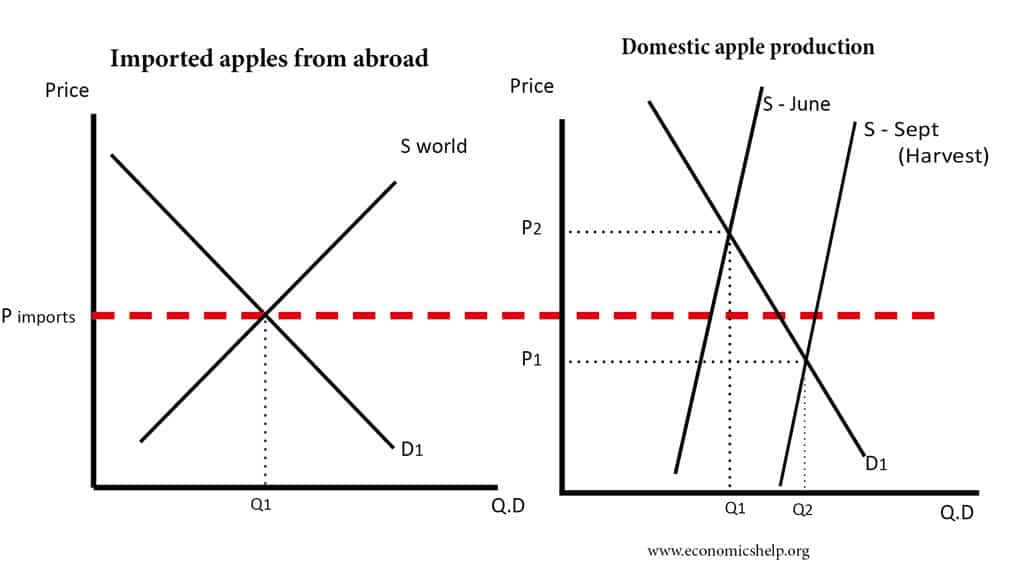Why does a country like the UK import and export the same good? Would it not be more efficient to just consume domestically the exports and therefore import less?
There are many reasons a country exports the same good it imports
- A difference in style of products may be suited to different market
- Seasonal trends, e.g. export fruit during domestic harvest – import during the rest of the year.
- The appeal of buying foreign goods – more exciting than buying domestic goods, e.g. Italian fashion has a good image amongst British shoppers. British fashion may have an appeal to Italian consumers. Consumers like an international diversity.
- Variations in supply. Fruit and veg and some other goods can be subject to variations in supply. If there is bad weather one month, supermarkets will look to imports from the rest of the world. But, if the weather is very good, British suppliers may be able to export.
Small apples and big apples
For example, Britain imports more than 476,000 tonnes of apples, but only export 14,800 tonnes (3%) of our own (PMA)
I was watching “What Britain buys and sells in a day” about the fruit and veg Britain imports on a single day. One thing I found fascinating is that British apple growers could only sell small and medium-sized apples to the domestic market. The British like to eat apples on the move and want to buy an apple that can easily fit in the palm of the hand. However, this leaves British apple growers with a substantial number of large apples that supermarkets do not want to buy.
The apple growers could sell cheaply for juicing. However, they found a lucrative export market to the middle-east, where large British apples are considered a luxury product. In the middle-east, there is a willingness to buy large apples – they are seen as superior to small apples. The fact they come from Britain is also seen as a desirable feature and strong marketing feature.
This difference in consumer preferences explains why the UK imports most of its apples, but there is still a niche export market for large British apples.
Seasonal factors
The market for fruit and veg is highly seasonal with buyers constantly looking for the cheapest prices. During September, British apples will be harvested and coming on to the market. This increase in the supply of British apples will reduce the price of British apples below that of foreign imports, so during autumn, we are more likely to be buying domestically grown British apples. However, as soon as the season ends, the price of British apples will rise above imports.

The diagram on the left is the price of imported apples from the world
The diagram on the right is the British domestic production. In June, the limited supply means the price of British apples is above the price of imports so supermarkets will mostly buy imports.
However, in September, when the harvest is made, the supply of British apples increases and the price falls below that of imports, so for September, supermarkets are more likely to buy domestic apples.
